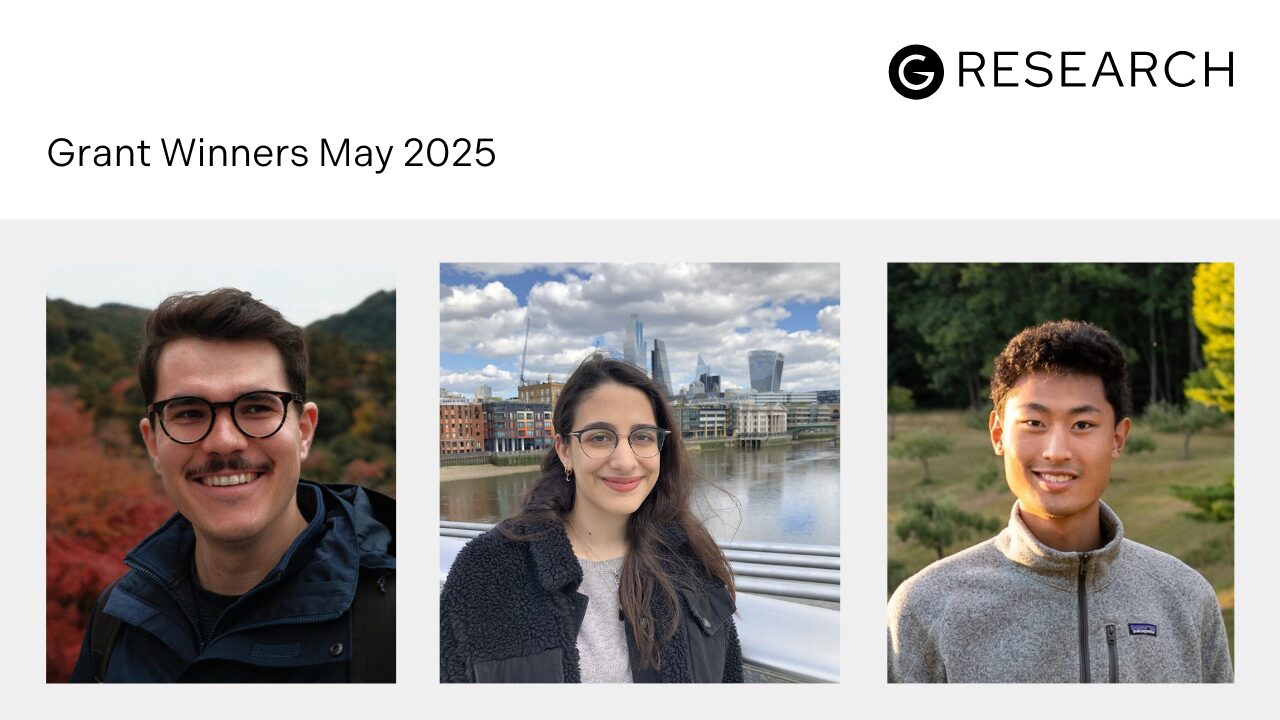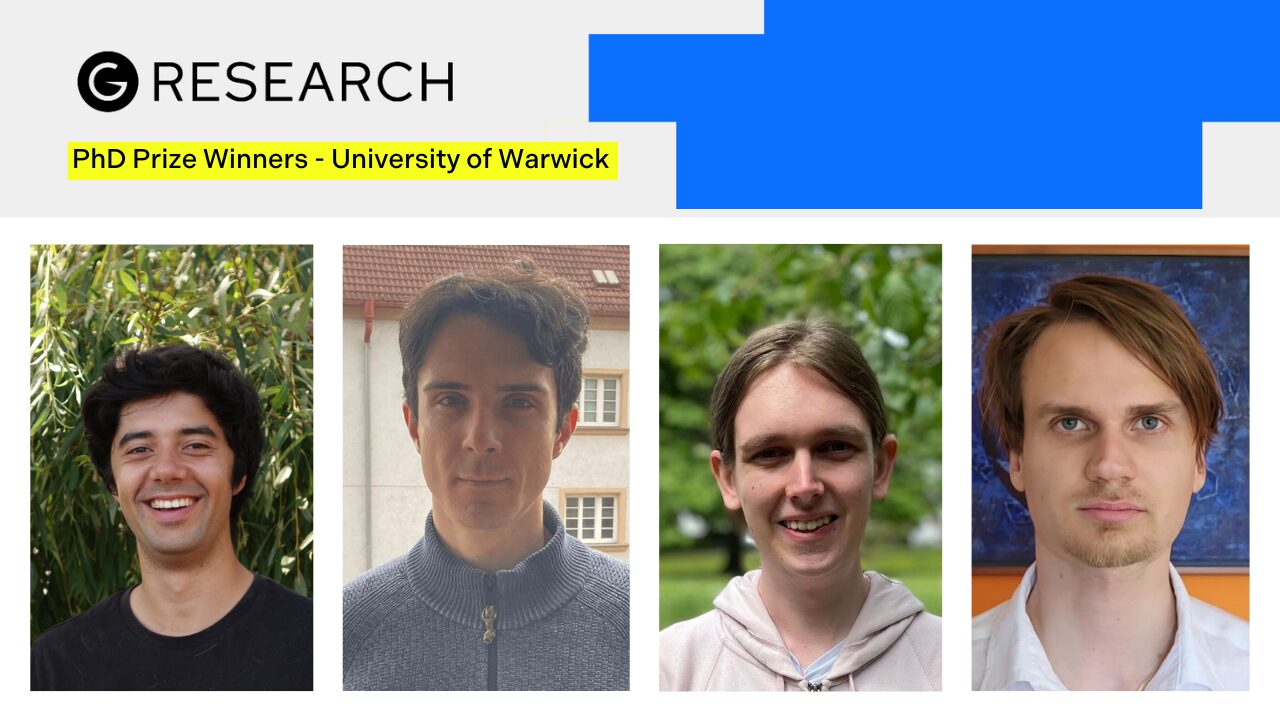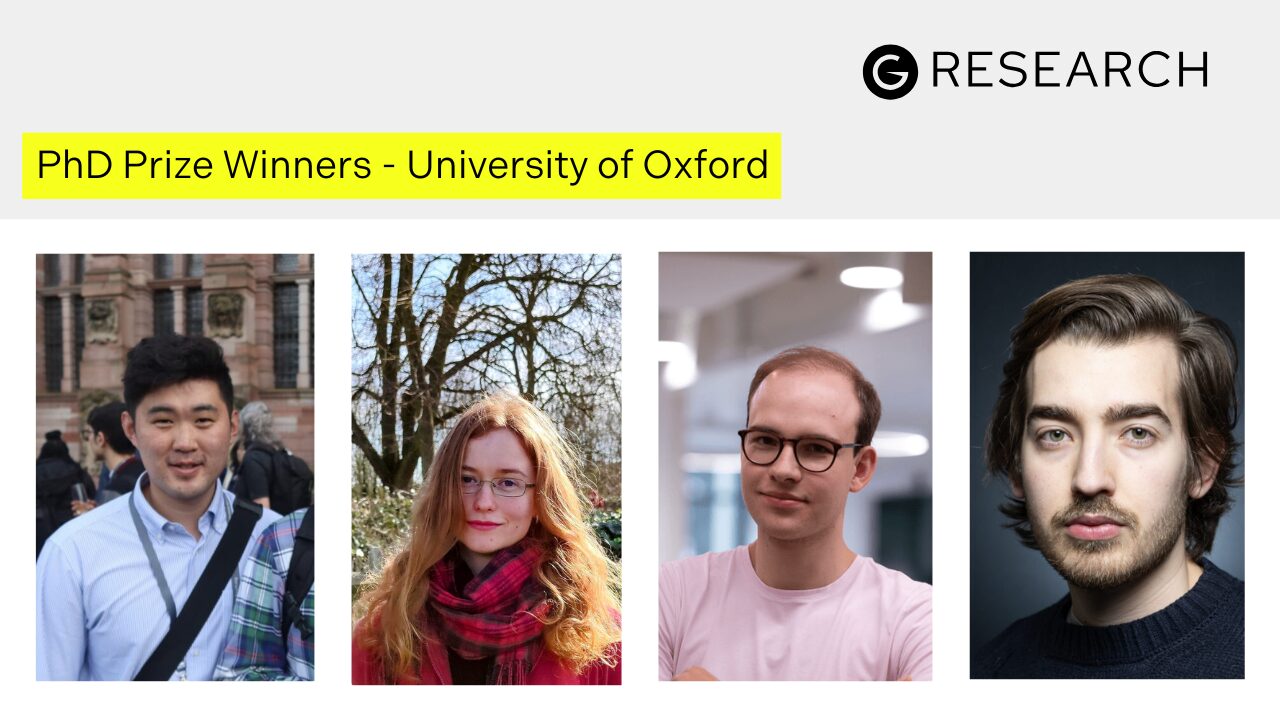Each month, we provide up to £2,000 in grant money to early career researchers in quantitative disciplines.
Our aim is to support and assist PhD students and postdocs conducting research, particularly with costs that may be difficult to get funding for elsewhere, for example, travel for those who are caring for children, or expenses for volunteer work related to research.
Learn more about our grant programme, including how you can apply and the work we support.
Read on to hear from our latest winners, their research and how our grants will aid their work.
November grant winners
Alex Jenkins (Imperial College London)
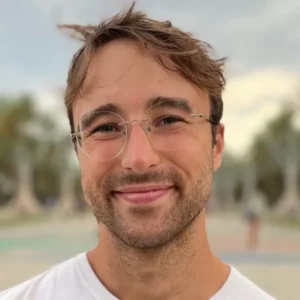
“I am a third year PhD student at Imperial College London researching graph signal processing and its application in studying cardiac electrophysiology. My supervisors are Professor Danilo Mandic and Dr Fu Siong Ng.
“I am extremely grateful to G-Research for this grant, which will enable me to conduct a research visit to my collaborators in Switzerland in the new year. The focus of this visit will be to develop new methods for active learning and uncertainty quantification in the context of spatio-temporal signal analysis. These endeavours seek to not only advance our technical understanding in these areas but also to create practical tools to aid clinicians, potentially improving diagnostic accuracy and patient care.”
Ruby Wood (University of Oxford)
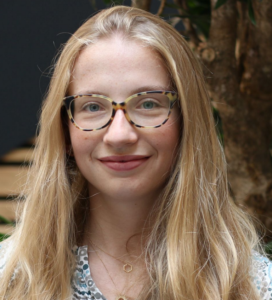
“I am PhD student in my final year at the University of Oxford, researching how we can use deep learning techniques to predict a cancer patient’s response to treatment from images of their pre-treatment biopsy tissue, and how we can translate these predictions into a clinical setting.
“This grant from G-Research allowed me to attend the NeurIPS conference in New Orleans, where gained exposure to the broader AI community and learnt a lot more about the state-of-the-art methods that are being developed and implemented today.”
Hannah Petrovic (University of Cambridge)
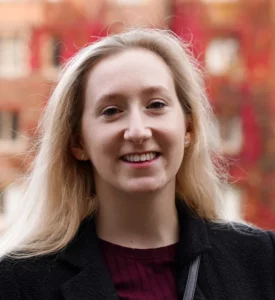
“I am a current PhD student at the University of Cambridge in the Institute of Astronomy, with research interests in understanding processes in planet formation. Specifically, my work is focused on investigating the material transport in protoplanetary discs with the use of high-resolution 3D global hydrodynamic simulations. This transport has consequences on the material available for further planetary growth in the inner protoplanetary disc, and on the chemical evolution of the system.
“I am grateful to G-Research for this grant that will provide me with funds towards a VR headset, which I will use to advance data visualisation techniques beyond traditional 2D screens, creating immersive visualisations.”
Noam Levi (Tel Aviv University)
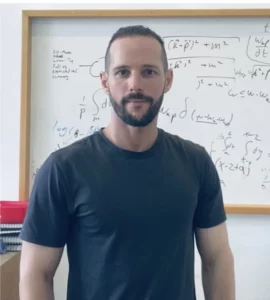
“I am a theoretical particle physicist exploring the intersection between physics and deep learning. My primary research interests involve employing concepts from Statistical Physics, Field Theory and Quantum Chaos to tackle open problems in computer science, as well as applying machine learning algorithms to explore new physics.
“The G-Research grant will go towards supporting my research visit to CERN and EPFL, where I will be working with both physicists and computer scientists on fundamental problems in both fields.”
James Chapman (University College London)
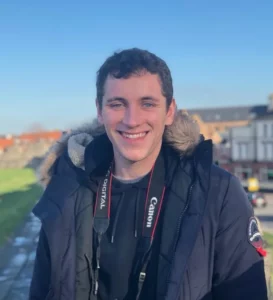
“I am a PhD candidate specialising in self-supervised representation learning.
“Thanks to the grant from G-Research, I had the opportunity to present my recent work at NeurIPS 2023. This work introduces a novel loss function for solving Stochastic Generalized Eigenvalue Problems, and deep learning-based extensions including Deep Canonical Correlation Analysis, using gradient descent.”
Peter Pommergård Lind (Aalborg University)
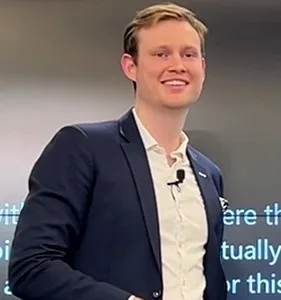
“I research learning methods for finance. More specifically, I develop fast and accurate methods for option valuation and calibration. I combine classical option theory methods with modern methods such as neural networks, tree regression, and differential machine learning to produce powerful tools for trading and risk management. I hope that these tools can improve solutions to complex real-world problems.
“This grant from G-Research will support my participation in QuantMinds 2023, where I will present my newest joint research paper with Jim Gatheral, NN de-Americanization: A Fast and Efficient Calibration Method for American-Style Options.”
Josh Givens (University of Bristol)
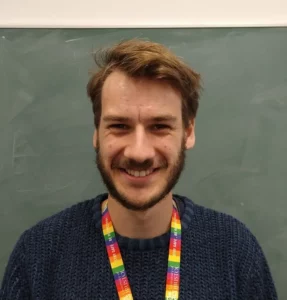
“I am a third Year Computational Statistics PhD Student working on various statistical and machine learning problems. One of my main focuses is on missing data within machine learning, with the goal of making machine learning algorithms robust to this phenomenon. This includes my most recent work which aims to perform score matching with missing data allowing for generative models to be learned with only partial observations.
“This grant will give me the opportunity to present this work at the prestigious Machine Learning Summer School in Okinawa.”
Keyan Miao (University of Oxford)
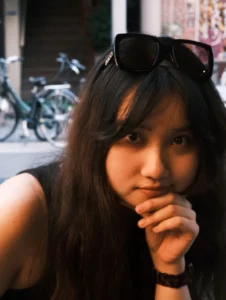
“I am a third‐year DPhil student in the Department of Engineering at the University of Oxford as a member of the Control Engineering Group, focusing on the intersection of control theory and machine learning. My research primarily explores the fusion of machine learning methods into control theory, aiming to resolve challenges in this interdisciplinary field.
“This generous grant from G-Research supported my attendance at this year’s NeurIPs conference and workshops where I presented my latest work.”
Mans Holmberg (University of Cambridge)
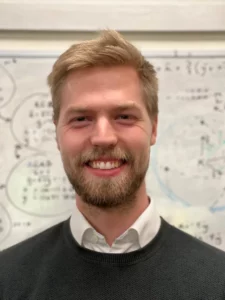
”I am a PhD student at the University of Cambridge, working on the atmospheric characterisation of exoplanets with state-of-the-art observing facilities, such as the James Webb Space Telescope. By studying exoplanets as they transit in front of their host stars, some starlight passes through the planet’s atmosphere, imprinting signatures in the spectrum. These signatures inform us about the atmospheric chemistry, temperature structure, and even clouds or hazes. My current research focuses on understanding the atmospheres of temperate planets with sizes between Earth and Neptune.
“I am grateful for G-Research’s generous support, which will enable me to present my research to a broader audience and foster collaborations with other researchers in the field.”
Congratulations to our grant winners.

